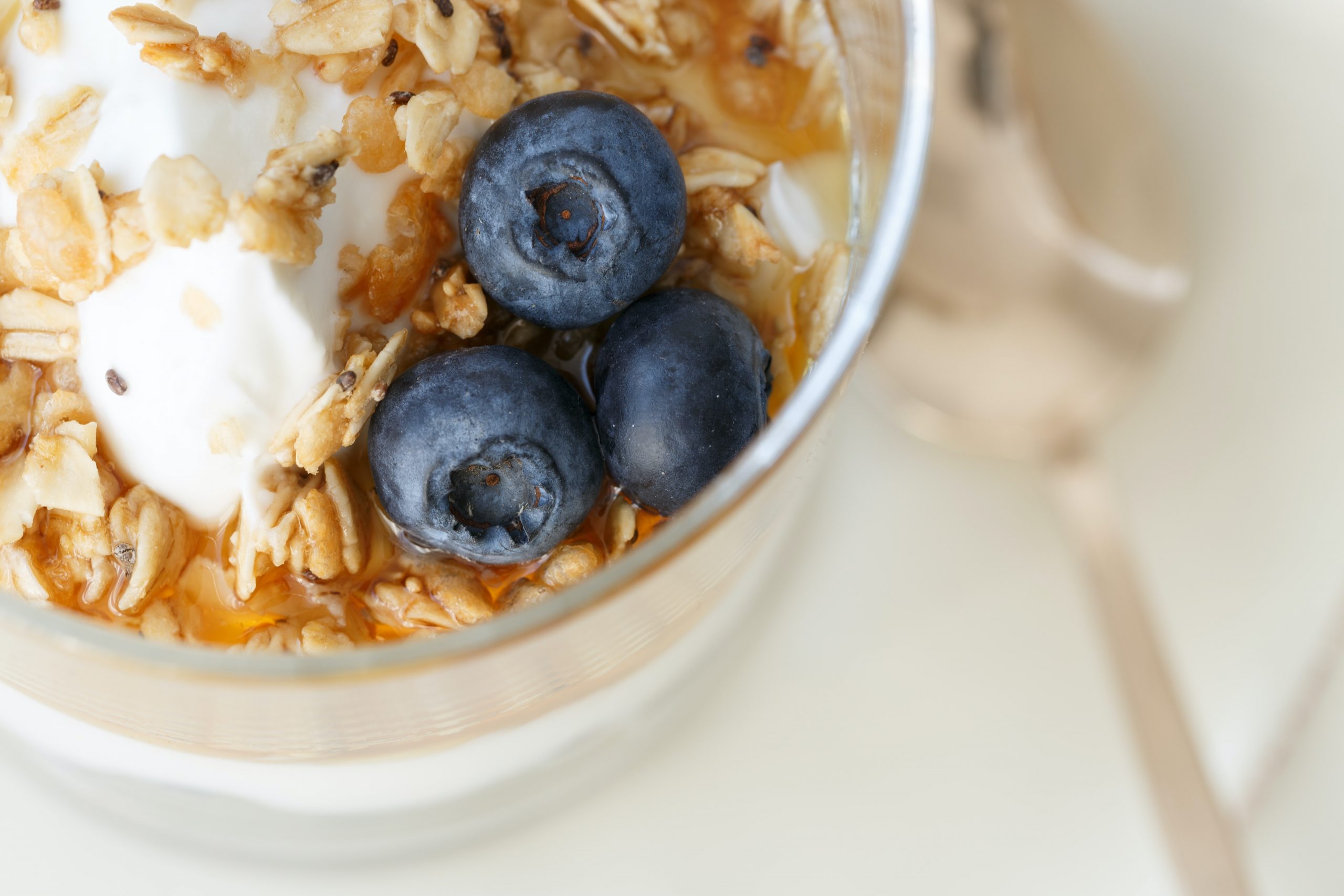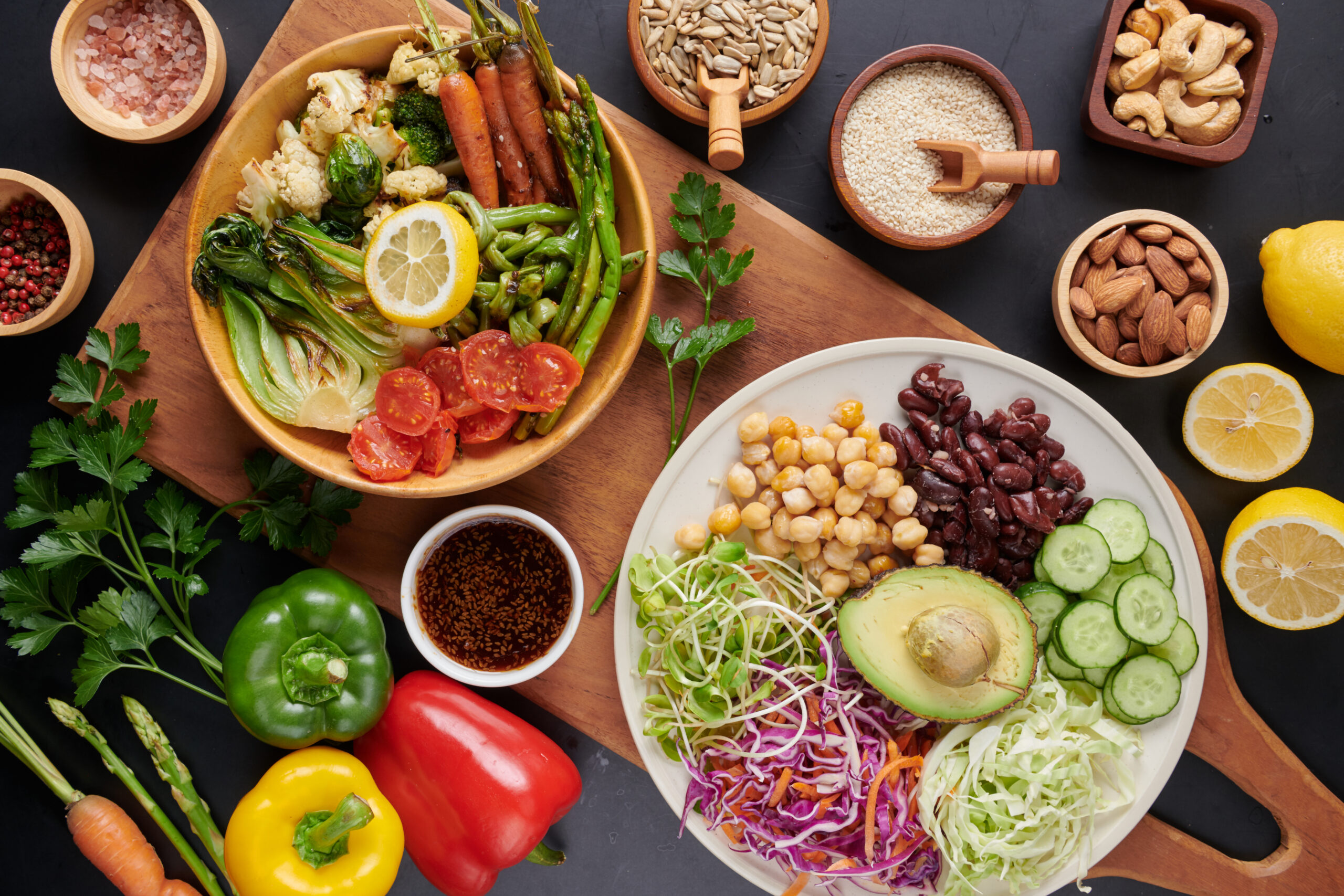
Learning About Your Gut Health – with Bonus Recipe
Nutrition and Your Gut
Trillions of microorganisms live within our digestive system; the largest number is in our small and large intestines and some throughout the body. This network of microorganisms includes bacteria, fungi, parasites, and viruses. Together, they make up what is called the microbiome. Each person has a unique microbiome that depends on their genetics, environment, medication use, and diet.
In a healthy person, these microbes coexist and help us in the following ways:
- By breaking down food and keeping regular bowel movements
- Boosting immunity
- Helping to regulate weight, blood sugar, and fats
- Decreasing inflammation
- Influencing mood
- Synthesizing vitamin K in the large intestine
What are Prebiotics and Probiotics?
Prebiotics and probiotics work together to optimize gut health.
Prebiotics are substances in foods that cannot be broken down by digestive enzymes. They travel to the large intestine and are fermented by probiotic bacteria. In other words, they “feed” the probiotic bacteria. Some foods with naturally occurring prebiotics are artichokes, asparagus, bananas, berries, chicory, garlic, green vegetables, legumes (like peas and beans), onions, tomatoes, oats, barley, and wheat.
Probiotics are defined by The World Health Organization as, “live microorganisms that, when administered in adequate amounts, confer a health benefit on the host.” Probiotics can be found in fermented foods like yogurt, kefir, and certain cheeses. Other fermented foods that may contain live cultures but have not been studied enough yet to determine if they provide additional health benefits are kimchi, sauerkraut, miso, tempeh, and cultured non-dairy yogurts. Products containing probiotics are often labeled as “contains live and active cultures.” Probiotics being sold as dietary supplements have not been proven to provide huge health benefits, but are often times safe to consume.
Ways to Boost Your Gut Health:
- Add more fermented foods to your diet.
- Enjoy a wide variety of fruits and vegetables.
- Eat mostly whole grains.
- Cut back on artificial sweeteners and emulsifiers (found in processed foods)
Bonus: Try this delicious gut healthy recipe!
Easy Overnight Oats with Yogurt
Adapted from joyfoodsunshine.com
Yield: Two 4 oz glass jars
Ingredients
- ½ cup plain Greek yogurt
- 1-2 tablespoons honey
- ½ teaspoon vanilla
- ½ cup milk
- ¾ cup oats
- Dash salt
- ¼ teaspoon cinnamon or to taste
- sliced banana for topping
Instructions
- In a large bowl, mix yogurt, honey, and vanilla. Stir until the mixture is smooth.
- Add milk and stir until combined.
- Add oatmeal, salt, and cinnamon and stir.
- Pour into two 4 oz glass jars, or one 8 oz glass jar and secure the lids.
- Place in the refrigerator to chill overnight (at least 6 hours).
- Serve with banana slices. Add a drizzle of nut butter if desired.
Enjoy!



